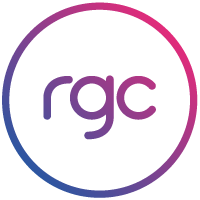The generational make-up of corporate travellers is evolving, but some of their interaction patterns might not be changing as quickly as expected.
FCM Travel Solutions’ 2017 multinational survey of 6,000 of the company’s top travellers spanning 66 countries had its first year where those aged under 39 years outweighed those aged 50 and over. The age bracket 40-49 remains significantly highest in number.
What does this mean for a travel management company like FCM?
“We are investing heavily in technology and product integration to align with growing demand but in our experience corporate travellers certainly still want to talk to people for assistance and complex bookings,” FCM Travel Solutions’ Managing Director Marcus Eklund said.
“High service will not give way to an offering solely focused on technology, it will run concurrently.”
FCM’s findings show that whilst a large proportion of travellers are satisfied with the broad offering there are key areas where travellers would like to see improvements in corporate travel.
Reducing the cost of travelling is always a key concern, along with better airline seating choices and the user friendliness of online booking tools.
Marcus Eklund said: “Driving travel policy is still a significant factor for most, along with the online booking tool settings that go with it, but we are seeing more requests for a less restricted travel search configuration. We’re seeing a generally higher tolerance by our corporate clients of this approach.
“Receiving a 95 per cent traveller satisfaction rate was pleasing but you need to keep listening to all travellers, not become complacent and understand what makes up the other five per cent.”
Some markets specifically have more challenges regarding the online experience mostly reflecting more complex markets, specifically Europe with the reliance on rail and extreme low-cost flight competition.
Another common area for improvement in addition to flight search options was seating selection which was mentioned regularly in survey feedback. Additional ancillary options will likely be a welcome change for the corporate traveller.
“With the New Distribution Capability program entering the market, along with increasing platform integration it will not only change the landscape of ancillary services but enhance the traveller experience in new ways,” Mr Eklund said.
“We will move into a much more connected era for the travel manager, and in addition offer new communication channels and ways to interact and support the traveller. Very exciting times are ahead.”


